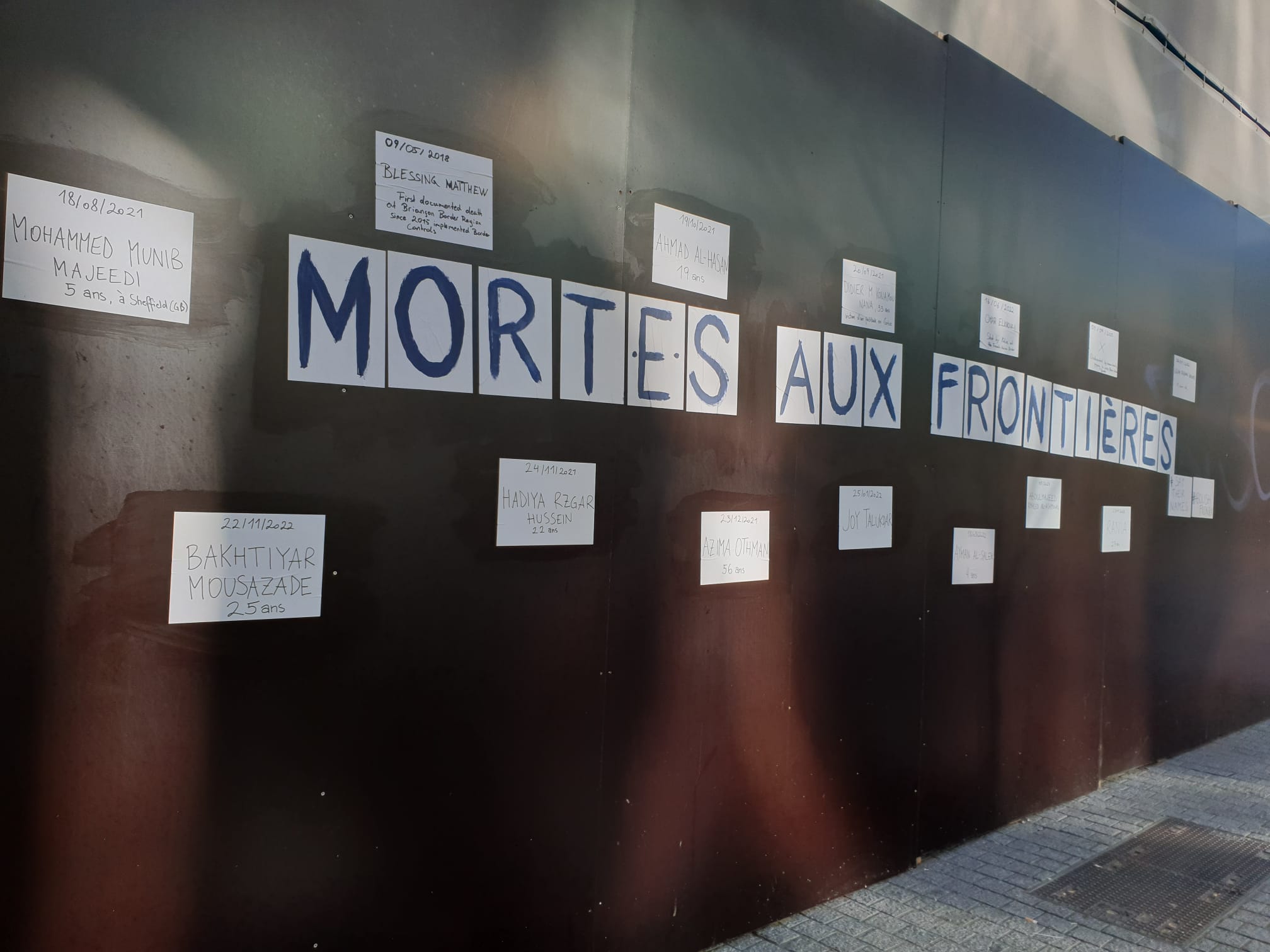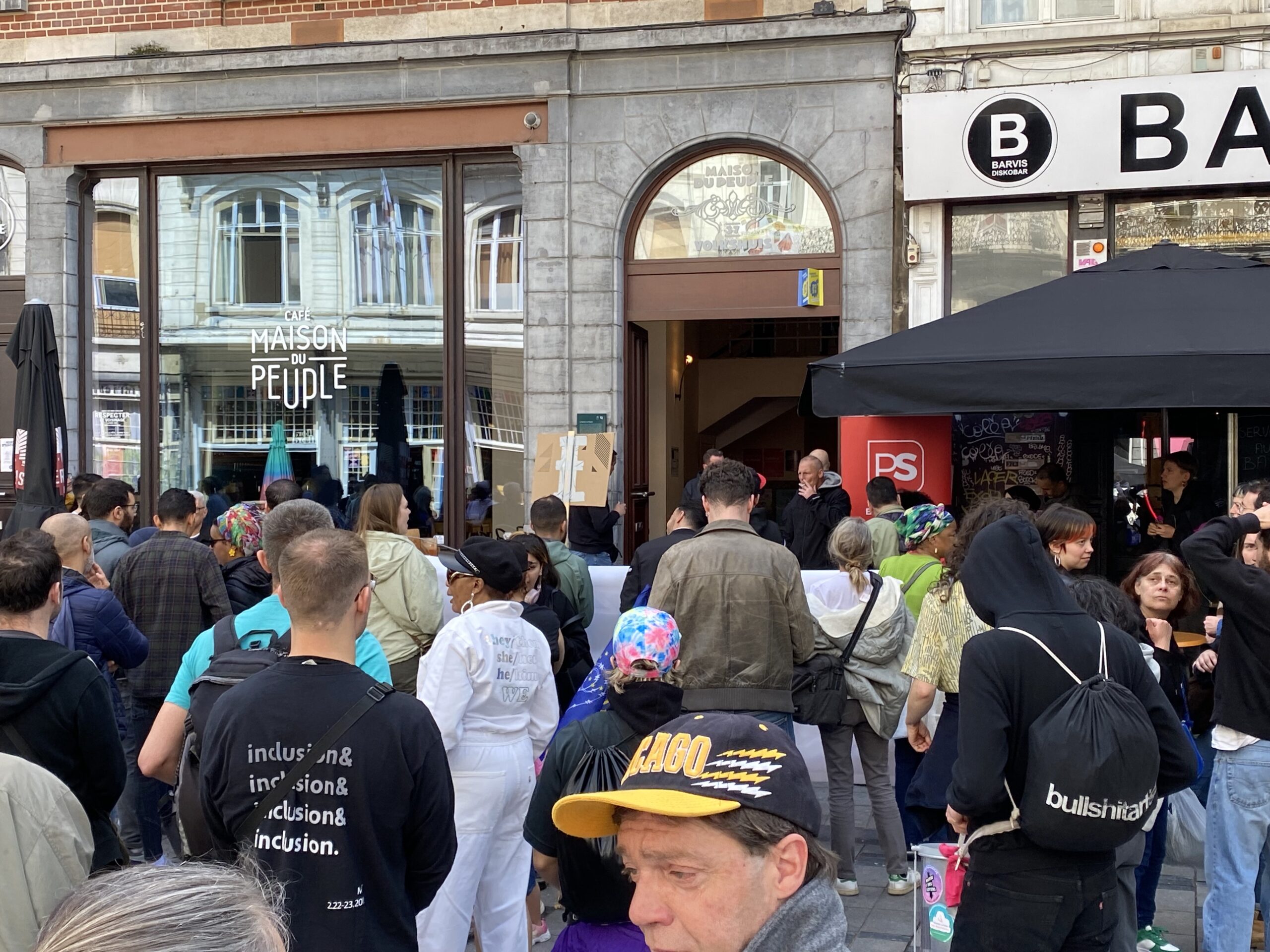Frontex officers could soon be deployed on Belgian territory if ministers give their approval. But civil society organisations have argued this would set a dangerous precedent.
The Christian Democratic Party CD&V put forward a bill to grant Frontex extensive powers on Belgian territory. The controversial proposal was due to be put to a vote at the Chamber's plenary session on 25 April but was postponed due to the ongoing mobilisation by citizens and civil society organisations. It will now take place on Thursday 2 May.
If approved, the bill would allow the European Border and Coast Guard to carry out police missions such as arrests, detentions and expulsions at Brussels-Midi station, the key airports, ports and other entry points. While this in theory should only be possible in the presence of a Belgian police, the wording in the bill leaves room for interpretation, raising concerns that Frontex agents could act unsupervised.
Questions about autonomy
Several refugee and human rights organisations have called on the Belgian parliament to reject the bill in light of the ongoing failures in the treatment of migrants and asylum seekers.
Findings by the European Anti-Fraud Office (OLAF) confirmed Frontex has a history of illegal pushbacks and has failed to report and assist boats in distress, activities are at odds with the application of migrants' fundamental rights. Fabrice Leggeri, its former director, has been accused of crimes against humanity and now is running as a candidate for French far-right Rassemblement National party.

A wall in Brussels where several names of people who died at Europe's borders have been hung up. Credit: Lauren Walker/ The Brussels Times
"The proposal to give Frontex similar powers to our federal police raises questions about the autonomy of these agents and safeguards against abuse. To date, those questions remain unanswered," said Tine Claus, director of Refugeework Flanders (Vluchtelingenwerk Vlaanderen).
Frontex staff can normally only be deployed under strict conditions but critics warn that the language of the law is vague. The Council of State has already called for clarification of these powers, the circumstances in which Frontex agents can act independently, and in which cases they can proceed with an arrest.
"The current lack of clarity raises concerns about the transparency of the process," Claus added, noting that full clarity on the role and powers of Frontex agents in Belgium – and who will oversee them – is needed before the bill can pass.

Protest outside a PS meeting in Saint-Gilles on 1 May 2024. Credit: The Brussels Times
Despite these apprehensions from organisations working with migrants, most of the political parties are in favour of the law. In the Home Affairs Committee, all parties agreed to vote in favour of the bill, except the left-wing PTB-PVBA.
Many citizens have criticised the left-wing Green parties (Groen and Ecolo) and the socialist PS and Vooruit parties for not rejecting the bill. "What nauseating dealings could the left-wing parties have had to accept such a compromise?" Abolish Frontex Belgium stated. Specifically, Vooruit has shifted massively to the right in terms of migration since the 2019 elections.
Several organisations took action at the PS and Ecolo Labour Day parties to demand they vote against the law on Thursday. "A vote in favour of the Frontex law would set an extremely dangerous and irreversible precedent," they argued.

